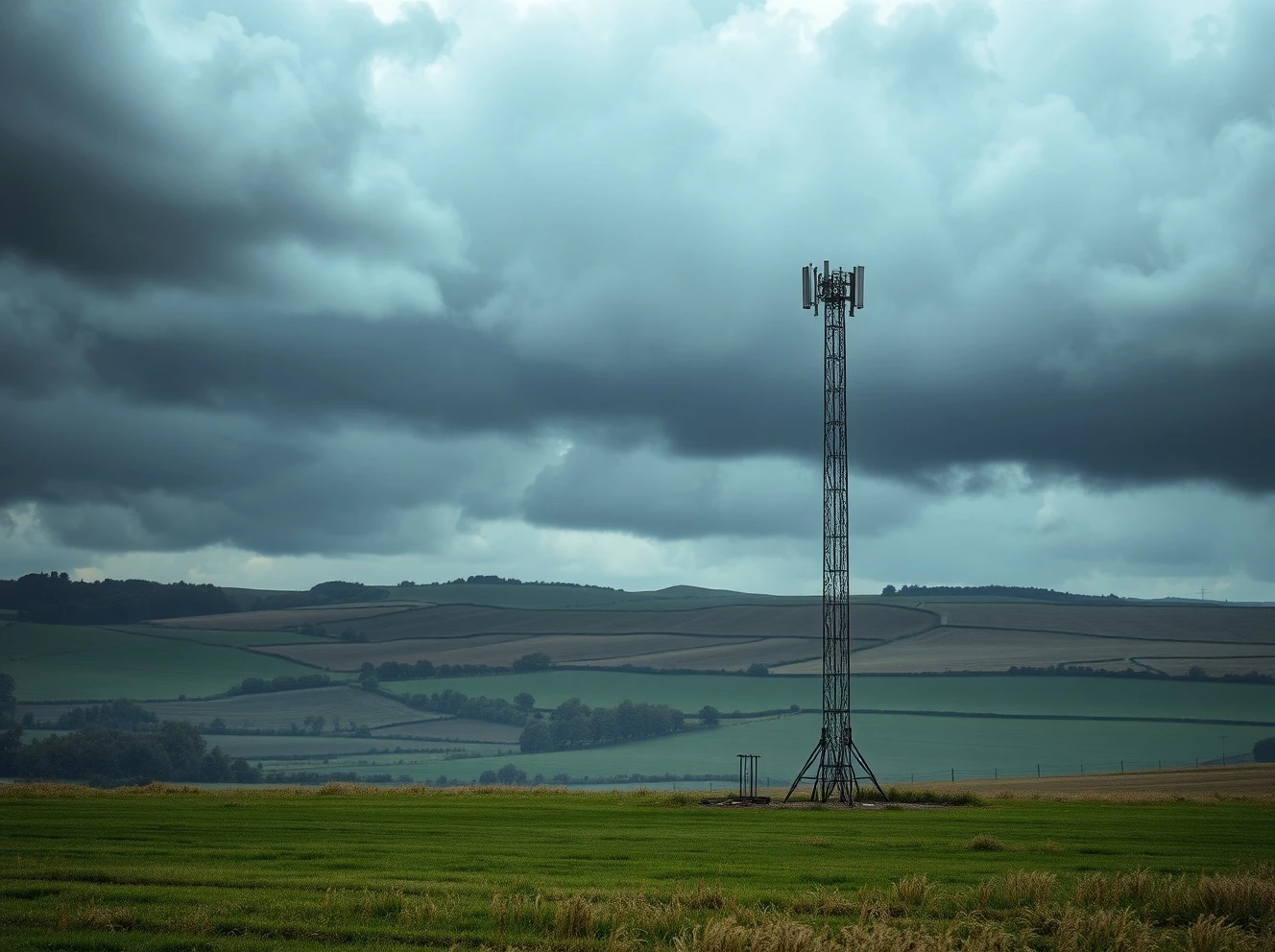Britain’s ambitious 5G rollout faces an unprecedented crisis as farmers and rural landowners revolt against devastating rent cuts that threaten to derail the nation’s digital infrastructure expansion. With mast rents slashed by up to 90%, thousands of site owners are considering abandoning contracts entirely.
5G Rollout Faces Immediate Threat from Landowner Revolt
The UK’s 5G rollout confronts serious obstacles as agricultural stakeholders protest drastic reductions in mast site payments. Consequently, many farmers now consider alternative land uses that offer better financial returns. Moreover, this situation creates significant risks for rural connectivity projects nationwide.
Severe Financial Impact on Mast Site Providers
Recent data reveals shocking rent reductions affecting numerous landowners:
- Cornwall farmer: £8,500 reduced to £750 annually
- Dorset landowner: £5,000 decreased to £1,600 per year
- Survey results: One-third of 500 site owners considering contract termination
Therefore, the financial viability of hosting telecommunications infrastructure becomes increasingly questionable for rural stakeholders.
Electronic Communications Code Sparks Widespread Discontent
The 2017 Electronic Communications Code fundamentally altered mast site economics. Essentially, it aligned telecommunications rents with utility corridor payments. However, this policy generated substantial controversy among affected parties. Mobile operators gained extensive renegotiation powers through this legislation.
Industry Responses and Counterarguments
Mobile operators defend the current framework vigorously. They emphasize the 5G rollout achievements since 2017:
- 33,500+ upgrades: 4G and 5G service improvements completed
- Shared Rural Network: 95% UK landmass 4G coverage achieved
- Consensual agreements: Majority settled without conflict
Nevertheless, landowners maintain that they unfairly subsidize national digital infrastructure development.
Broader Implications for UK Digital Strategy
The 5G rollout dispute extends beyond immediate financial concerns. Actually, it reflects deeper tensions between urban technological progress and rural economic interests. Furthermore, Britain already trails European competitors in 5G deployment metrics. The government’s growth strategy heavily depends on enhanced digital connectivity nationwide.
Potential Solutions and Ongoing Consultations
The Department for Science, Innovation and Technology acknowledges persistent tensions. Currently, officials examine consultation findings to balance competing interests. Ultimately, they seek solutions that accommodate landowners, operators, and communities simultaneously. However, achieving consensus remains challenging given fundamentally opposed perspectives.
Frequently Asked Questions
What is the Electronic Communications Code?
The ECC is 2017 legislation that standardized mast site rents with utility corridor payments, granting operators extensive renegotiation powers.
Why are farmers considering abandoning mast contracts?
Rent reductions reaching 90% make alternative land uses more profitable, including holiday lets and solar farms.
How does this affect rural communities?
Reduced mast site availability could worsen the digital divide, leaving rural areas with inferior connectivity compared to urban centers.
What is the government doing to address these concerns?
Officials are reviewing consultation responses to develop balanced solutions that support infrastructure development while respecting landowner rights.
How far behind is the UK in 5G deployment?
Britain trails several European nations in 5G coverage metrics, particularly in rural and remote geographical areas.
What are the economic consequences of delayed 5G rollout?
Delayed deployment could hamper productivity growth, innovation capacity, and regional development initiatives across the United Kingdom.






